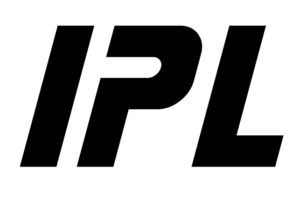Only Fans
Navigating The Pros & Cons

In a digital era where intimacy is streamed and autonomy is monetized, OnlyFans has become both a buzzword and a battleground. Launched in 2016 and propelled into pop culture prominence during the pandemic, the platform has redefined what it means to be a modern-day entrepreneur—especially for women reclaiming control over their image, income, and influence.
Launched in 2016 and propelled into pop culture prominence during the pandemic, the platform has redefined what it means to be a modern-day entrepreneur—especially for women reclaiming control over their image, income, and influence.
But as the lights flicker between empowerment and exploitation, the question remains: Is OnlyFans the ultimate expression of financial freedom or a slippery slope of commodified vulnerability?
THE ALLURE: AUTONOMY, AUDIENCE, AND AFFLUENCE

For many, OnlyFans offers what traditional industries often withhold—control. From fitness influencers and models to chefs and adult performers, the platform allows creators to choose their content, set their prices, and speak directly to their audience without middlemen or censors.
“OnlyFans gave me the power to monetize my content on my terms,” says a top-earning creator who transitioned from Instagram modeling to exclusive subscriptions. “It’s not just about the body; it’s about branding. I built my own empire from my bedroom.”
“It’s not just about the body; it’s about branding. I built my own empire from my bedroom.”

Indeed, stories like hers have fueled a cultural shift. For some, the platform is a feminist act—a refusal to be underpaid or silenced, wrapped in the velvet glove of digital entrepreneurship. Income potential can skyrocket. Some users report six figures a year. Others, millions. The financial independence is real. So is the pride.
THE SHADOWS: STIGMA, SATURATION, AND SAFETY
But even in a post-#MeToo world, the stigma surrounding adult content—and those who create it—remains harsh and persistent. “People assume you’re lazy or desperate if you’re on OnlyFans,” says another creator who left the platform after a year. “But the truth is, it’s exhausting. You’re managing content, messages, marketing—it’s a 24/7 job, and your mental health can take a serious hit.”

Oversaturation has also made success harder to reach. As more creators join, the competition stiffens. Without a savvy marketing strategy or established fan base, many struggle to break even. Then there are the real dangers: privacy leaks, content theft, and online harassment. And despite policies in place, some creators feel the platform doesn’t go far enough to protect them.
CULTURAL CLASH: REBELLION OR REINFORCEMENT?
OnlyFans sits at the intersection of liberation and contradiction. On one hand, it disrupts the gatekeeping of traditional media. On the other, it risks reinforcing the very beauty standards and male gaze it claims to transcend.
Then there are the real dangers: privacy leaks, content theft, and online harassment.

Critics argue that the platform, while empowering for some, perpetuates a system where success is still tied to appearance, sexuality, and the pressures of constant exposure. Yet defenders counter: Isn’t the real empowerment in the choice?
THE BOTTOM LINE
Like any revolution, the OnlyFans era is complex, layered, and still evolving. It isn’t just about sex or money—it’s about agency, visibility, and the redefinition of power in the digital age.
As society continues to grapple with what is acceptable, admirable, or taboo, one thing is clear: the women (and men) of OnlyFans are not waiting for permission. They are rewriting the rules—subscription by subscription. SEAM

More From SEAM Spring 2024 Issue

SEAM Magazine: Only Fans – Navigating The Pros & Cons
In a digital era where intimacy is streamed and autonomy is monetized, OnlyFans has become both a buzzword and a battleground. Launched in 2016 and propelled into pop culture prominence during the pandemic, the platform has redefined what it means to be a modern-day entrepreneur—especially for women reclaiming control over their image, income, and influence.

SEAM Magazine: IPL Pro Samantha England – Young Mom & Fitness Influencer
“I try to be as ‘go with the flow mom’ as possible. But it definitely requires some time management!”

SEAM Magazine: Renew, Refresh, Revamp – Fashion Trends for Spring 2024
This season, it’s time to renew your style, refresh your outlook, and revamp your closet with fashion that makes a statement. Here’s your ultimate guide to the most exciting trends for Spring 2024!

SEAM Magazine Cover Story – Lesley Beck: Forties Are The New Twenties
“In my 20’s it was more of something to check off a list like, ok I went to the gym today. Now, I have a clear plan each and every day that’s aligned with my goals.”

SEAM Magazine – Finding Love in 2024: Modern Guide To The Dating Scene
In the ever-evolving landscape of love and relationships, the dating scene for women in 2024 brings a mix of challenges and exciting opportunities.

SEAM Magazine: Jackie Lawrence – All Things Beauty & Fitness
“Start NOW! It’s never too late. Block out the noise, put your blinders on and BELIEVE! I have witnessed so many women in the mid-life era completely transform.”

SEAM Magazine: IPL Pro Teresa Moss & Her Life of Adventure – From Bodybuilding to Outdoor Expeditions
“I don’t want to look back and wish I’d done more. Every day is an opportunity to push myself further, whether it’s in the gym or the wild outdoors.”

9X IPL Pro Champion Lesley Beck Lands Cover Of SEAM Magazine
“It’s such an honor to be featured on yet another cover. Never in my wildest dreams did I ever think this would be my life, especially in my 40’s. It is moments like this that motivate me to keep getting better.”

SEAM Magazine – Maggie Mckeaver: IPL Bikini & Evening Gown Pro Champion
“Do what YOU love. Not what others told you to love.”

SEAM Magazine: Got Lashes? How To Keep Yours Long & Luscious
Whether you’re blessed with naturally long lashes or looking to enhance what you have, here are some expert tips to help you achieve and maintain enviable lashes that steal the spotlight.

SEAM Magazine Cover Story – Jen Enrich-Wills Is Fifty Plus & FABULOUS!
“It’s a sign that I’m growing and evolving as a person. As I’ve gone through different phases in my life, my interests and tastes have changed.”
